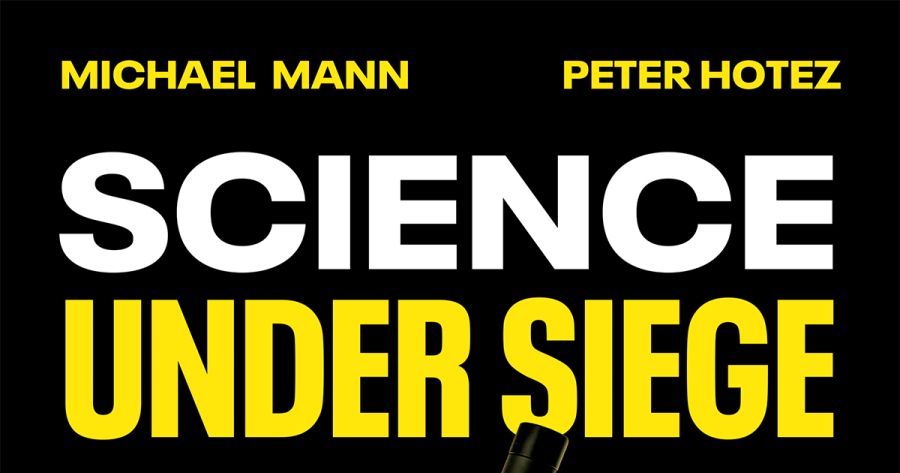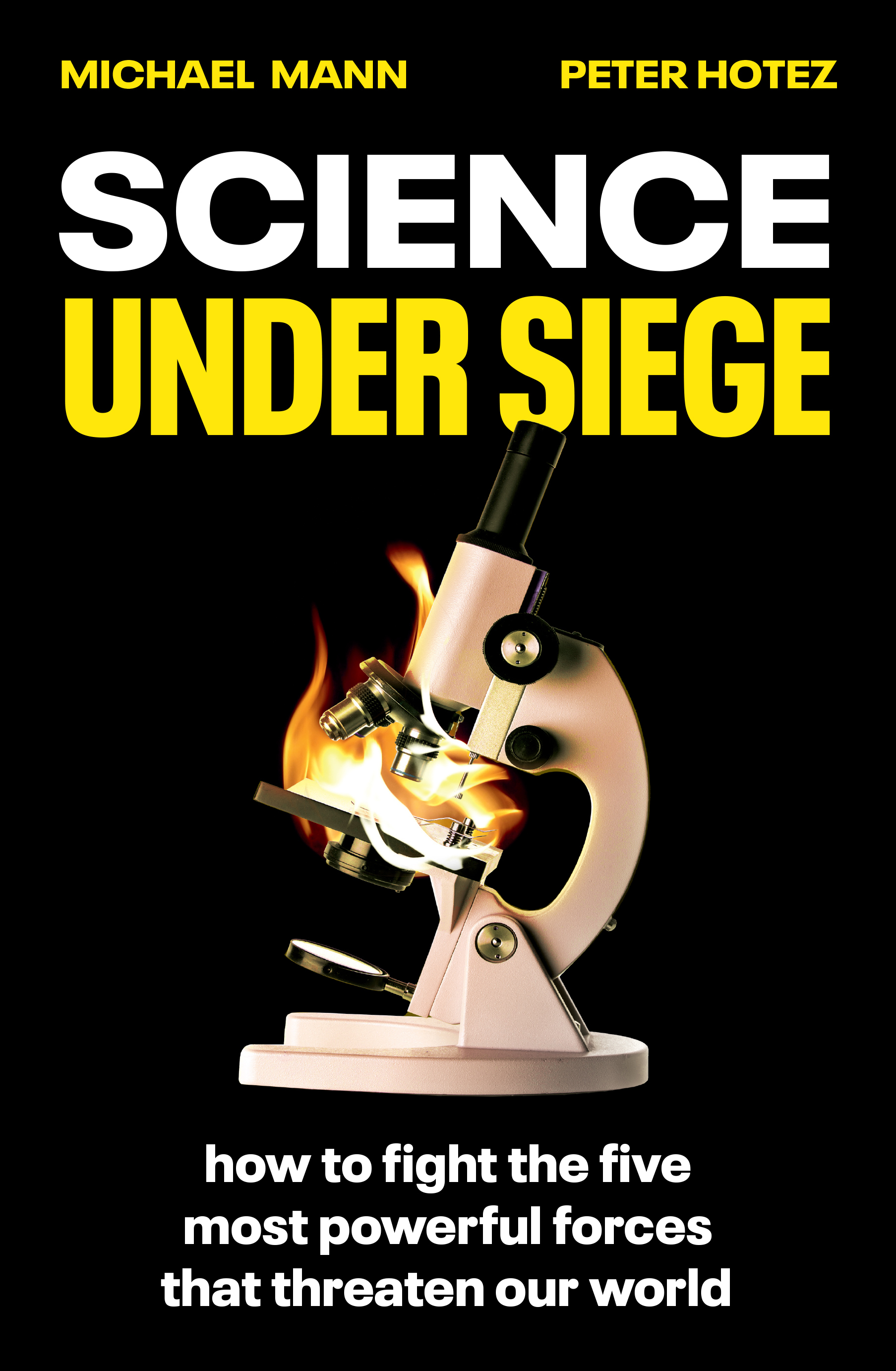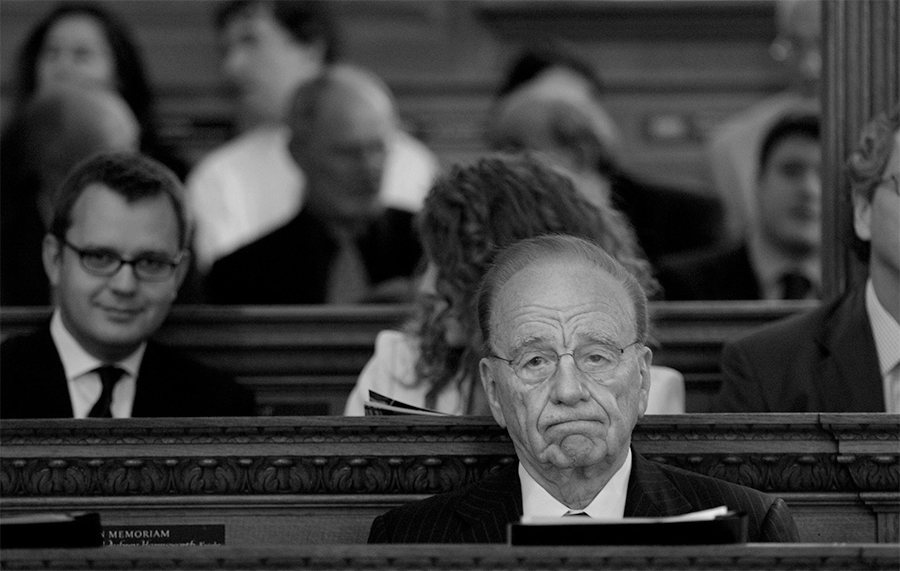
- Free Article: No
- Contents Category: Science
- Review Article: Yes
- Article Title: Pros and phonies
- Article Subtitle: Defending science from dark forces
- Online Only: No
- Custom Highlight Text:
Two distinguished professors have joined forces to write an impassioned book about the recent, concerted attacks on science. While they both live and work in the United States, where what they describe as the ‘forces of darkness’ are most active and influential, the problem they describe is truly global. Mann is a celebrated climate scientist who has been a leading voice in the field since the 1980s, while Hotez is a virologist who became involved in the public debate about the Covid-19 pandemic. The central argument of the book is that we face existential crises in both human health and the health of our planet. While the best hope of successfully tackling these challenges relies on science, there is now ‘politically and ideologically motivated opposition to science’, threatening both our ability to advance understanding of these complex issues and, equally important, the freedom of scientists to communicate their understanding.
- Book 1 Title: Science Under Siege
- Book 1 Subtitle: How to fight the five most powerful forces that threaten our world
- Book 1 Biblio: Scribe, $36.99 pb, 368 pp
- Book 1 Cover Small (400 x 600):

- Book 1 Cover (800 x 1200):

- Book 1 Readings Link: https://www.readings.com.au/product/9781761381669/science-under-siege--michael-e-mann-peter-j-hotez--2025--9781761381669#rac:jokjjzr6ly9m
This Queensland minister was using the word ‘theory’ as it applies in some public discourse, meaning an unproven idea that a friend in the public bar advanced just before closing time. Of course, in science a theory is the current best understanding of the underlying reason for what we can observe. The fundamental point is that science is always a work in progress and that existing theory can be modified or even overturned if there is persuasive new evidence.
When I engaged in a public debate with one of the proponents of ‘creation science’, I asked him what evidence would convince him that his theory was wrong. When he replied that no evidence could counter what he regarded as God’s unchallengeable word, I pointed out that this could not be represented as ‘science’.
I had similar experiences in the late 1980s when I began talking about climate science. I debated a geologist who used the science as a drunk uses a lamp post: for support rather than illumination. From the vast body of scientific literature, he cherry-picked from the shrinking minority who supported his world view and ignored the overwhelming majority whose work was documenting the human contribution to climate change. He was supported by a prominent right-wing interest group to spread his misinformation.
In the late 1980s, the anti-science forces were few in number and had little credibility, but Mann and Hotez document in frightening detail the scale of the problem now. They identify what they see as the ‘five main forces threatening science: plutocrats, pros, petrostates, phonies and the press’. I am not convinced this is a helpful categorisation. The pros and phonies blur into a continuum rather than being distinct categories; one of our most famous plutocrats, Rupert Murdoch, is actually a media mogul who controls most of our press, and the leaders of the fossil fuel industries act in close concert with the countries they call ‘petrostates’.
But the overall point is undeniable. Whether we consider climate change or responses to pandemics, there is a well-funded and highly organised group of actors who are doing their best to ensure that policy decisions are not guided by the science.
 Rupert Murdoch at the Reuters service in St Brides to mark the move of Reuters from Fleet Street to Canary Wharf, 2005 (photograph by Tom Pilston, Independent/Alamy)
Rupert Murdoch at the Reuters service in St Brides to mark the move of Reuters from Fleet Street to Canary Wharf, 2005 (photograph by Tom Pilston, Independent/Alamy)
Since the early climate change treaty COPs in the 1990s, I have personally witnessed countries with economic interest in exporting fossil fuels – Australia included – working diligently to oppose a concerted response. Again, I have direct personal experience of discussing climate science with leading industrial figures and senior figures in the Murdoch media empire, finding that they preferred the misinformation supporting their ideological position to the great weight of scientific knowledge.
Mann and Hotez single out the Murdoch press as ‘the greatest source of climate and COVID misinformation in our news media today’. Although that global conglomerate has ‘served as a megaphone for climate denial for decades’, this book rightly highlights the peddling of a ridiculous myth that the unprecedented 2019-20 Australian bushfires were due to arson or misguided backburning, rather than the consequences of climate change, a phenomenon which scientists had been predicting since the 1980s. While Australia and the United Kingdom still have public broadcasters, they are often persuaded to give equal time to misinformation in the name of ‘balance’. For decades after the science of climate change was effectively settled, the media continued to give the impression that there was no solid evidence base to justify a reduction in our use of fossil fuels.
There is a fine line between pessimism and despair. It would be easy to give up the fight and allow those opposing the wise use of scientific knowledge to prevail. A Griffith University research project in which I was involved, Intimidation of Scientists, published this year, found that well-informed scientists are often discouraged from speaking out by senior colleagues or institutional managers. Public communication is rarely valued or even recognised as part of the responsibilities of working scientists.
With the United States under the Trump administration a ‘petrostate and bad actor’, both with regard to climate and pandemics, Mann and Hotez argue that democratic nations such as Japan, Australia, and the United Kingdom need to join forces with the European Union and the United Nations to work for a civilised future. However, they are realistic about obstacles, given the financial support of political parties by the fossil fuel industries.
Despite an overwhelming rejection of the Coalition’s climate policies in the 2025 Australian federal election, and the election of unprecedented numbers of young politicians wanting to see action on climate change, it is disappointing to see that the Albanese government is happy to approve new fossil fuel export projects or extend existing ventures. It should hardly be necessary to point out that science is a much better basis for wise decisions than organised superstition or malevolent misinformation. This book is a powerful call to support our scientists in the struggle against misinformation and, equally importantly, to remind decision makers of the need to trust the science.


Comments powered by CComment